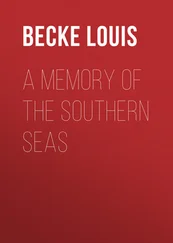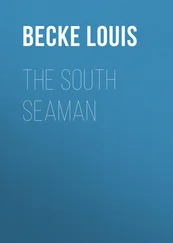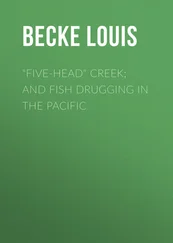Louis Becke - Edward Barry
Здесь есть возможность читать онлайн «Louis Becke - Edward Barry» — ознакомительный отрывок электронной книги совершенно бесплатно, а после прочтения отрывка купить полную версию. В некоторых случаях можно слушать аудио, скачать через торрент в формате fb2 и присутствует краткое содержание. Жанр: foreign_prose, literature_19, foreign_antique, на английском языке. Описание произведения, (предисловие) а так же отзывы посетителей доступны на портале библиотеки ЛибКат.
- Название:Edward Barry
- Автор:
- Жанр:
- Год:неизвестен
- ISBN:нет данных
- Рейтинг книги:4 / 5. Голосов: 1
-
Избранное:Добавить в избранное
- Отзывы:
-
Ваша оценка:
- 80
- 1
- 2
- 3
- 4
- 5
Edward Barry: краткое содержание, описание и аннотация
Предлагаем к чтению аннотацию, описание, краткое содержание или предисловие (зависит от того, что написал сам автор книги «Edward Barry»). Если вы не нашли необходимую информацию о книге — напишите в комментариях, мы постараемся отыскать её.
Edward Barry — читать онлайн ознакомительный отрывок
Ниже представлен текст книги, разбитый по страницам. Система сохранения места последней прочитанной страницы, позволяет с удобством читать онлайн бесплатно книгу «Edward Barry», без необходимости каждый раз заново искать на чём Вы остановились. Поставьте закладку, и сможете в любой момент перейти на страницу, на которой закончили чтение.
Интервал:
Закладка:
Going into his cabin, he presently returned with six or eight pearls, all of which were certainly splendid specimens. Placing them on the scarlet table-cloth he pushed them over to Barry to examine.
"They certainly are beauties. I've seen larger and better in the Paumotus when I was in the Tawera ," said Barry, "but anyway, that lot is worth 400 pounds or 500 pounds."
Rawlings nodded. "Well, to cut a long story short, we came to an agreement with the old man, whereby I was to find divers, and provide all working expenses, boats, and the necessary gear, and to receive one-half of all the shell and pearls found. Tracey was to stand in with us, too—old Gurden and myself were each to give him one-tenth.
"Taking the old man on board—the poor old fellow was not only in feeble health, but was childishly anxious to, as he said, 'smell the smell of a big town again'—we left Strong's Island for Sydney. From the very first Gurden became weaker, and on the fourth or fifth day out he told us that he did not believe he would live through the night. We tried to cheer him up, but he only shook his head, and requested us to commit to paper the exact bearings of the patches of the pearl-shell beds on the lagoon he was doomed never to see again. This was done, and he then requested that as Tracey's wife had nursed him during the time he was on board, that what would have been his share of the profits of our coming venture should be given to her, as he had not a relative or connection in the world. Early in the morning he had breathed his last.
"We buried the old fellow that afternoon, and almost immediately afterward dirty weather came up from the northward, and by nine o'clock we were driving along under an ugly sky at a great rate. Tracey was below, turned in, and I was on deck with Barradas, who had taken the wheel for a few minutes to allow the man who was steering to lend a hand at some job on the main deck. Just then, poor Alice Tracey came up from below, walked aft, and stood at the stern with her hand on the rail, looking at the brig's boiling wake; this was a frequent habit of hers. Neither of us took any further notice of her after she had remarked that the cabin was very stuffy—we were running before the wind at the time. About five minutes later I went for'ard, and just as Barradas was giving up the wheel again, he noticed that Mrs. Tracey bad disappeared. He gave the alarm in an instant, for he knew she had not gone below again, and must have fallen overboard without a cry.
"In bringing to, to lower a boat, our decks were twice filled, and this caused much delay. Poor Tracey nearly went mad, and both he and the boatswain searched for her all night in two boats, while we burnt every blue light on board, and then kept a flare going till daylight—all without avail. We were then about five miles west of Pleasant Island, and Tracey had a wild hope that his wife, who was a splendid swimmer, might have kept herself afloat and succeeded in reaching the land, which is densely populated. To please him I sent the boats ashore, and made inquiries from the natives, but of course there was not the slightest hope. She must have hurt herself when she fell, and sunk at once, or else she could not have failed to have been seen or heard by one of the two boats.
"The rest of the voyage was sad enough in all conscience, for Tracey was never the same man again. The crew, too, began to get the idea that we were to be an unlucky ship, and eventually became gloomy, discontented, and finally almost mutinous. I dropped a good many of them at various islands as we came along, but picked up others in their places—just the sort of men I wanted for divers and boat work. At Levuka I shipped six Penrhyn Islanders—the best divers in the Pacific—but the other fellows contaminated them, and they too bolted from me in Sydney. Poor Tracey took all our misfortunes very much to heart, for, in addition to his grief at the loss of his wife, he imagined that we should find ourselves forestalled when we reached Providence Lagoon. He had been very quiet and depressed for some days, but I never imagined that his mind would become unhinged. However, one night he locked himself in his cabin and shot himself."
"Poor fellow!" said Barry, with genuine sympathy.
"I feel his loss most keenly, I can assure you," resumed Rawlings, laying down his cigar, and sighing as he stroked his pointed beard. "Well, all that could be done for him was done, but, as I have just said, the doctors gave no hope from the first. When he became conscious—which was early on the following day—and was told that he had no chance of life, he took it very quietly, but begged me to let him remain on the ship and not send him ashore. He had an absolute horror of dying in an hospital, he said. Both of the doctors said it was just as well, so I yielded to his wishes. And then, besides being my chief officer, he was a personal friend, and was largely interested with me in this pearl-shelling venture, though he had no share in the brig."
Barry nodded. "Hard lines."
"Hard lines, indeed. And now you will see how I was situated. Poor Tracey urging me almost with his dying breath to put to sea, my solemn promise to him that I would do so the moment I could get men to replace those who had run away, and my own anxiety—all these things tended to irritate and upset me. To get men at the Government shipping office meant a delay of perhaps three or four days, to obtain a suitable man as mate might have meant a week. During this time poor Tracey's death would have still further complicated matters and hindered the Mahina from putting to sea. I had picked up those four loafing scoundrels you saw me bring aboard only an hour or two before I met you; and, just before I did meet you, I had decided to give Tracey's berth to Barradas, and promote the boatswain to second mate. However, I did meet you, and very glad I am of it, for I am sure we shall pull together."
"I am sure of it," answered Barry, who now felt a sympathy for the man.
"I must tell you," added Rawlings presently, with a smile, "that I am not much of a navigator, and as Barradas is no better I shall rely on you, as I did on Tracey."
"Certainly, sir."
After a few minutes' more conversation, in which Rawlings outlined his plans for the trading and pearling operations, and showed Barry a large scale chart of Arrecifos Lagoon in the Caroline Islands, which was the brig's destination, the two men parted for the night.
Immediately after breakfast on the following morning the brig was laid to, the crew ranged upon the deck, and the body of her former chief officer was carried up from the cabin by two native seamen and committed to the deep.
CHAPTER IV.
MR. BILLY WARNER, OF PONAPÉ
Ten days after leaving Sydney the Mahina had rounded the south-eastern end of New Caledonia, and was steering a northerly course between the New Hebrides Group and the great archipelago of the Solomon Islands for Arrecifos Lagoon. During these ten days Barry had had time to study Captain Rawlings and the rest of the ship's company, and had come to the conclusion that there was some mystery attached to both ship and crew. The latter, with the exception of the boatswain, who was a dark-faced, ear-ringed Greek, and the four new hands brought on board by the captain, were all natives of various islands of the Equatorial Pacific. Seven of the twelve, with two of the white men, were in Barry's watch; Barradas had the rest. Among Barry's men was a stalwart young native, much lighter in colour than the others, very quiet in his demeanour, but willing and cheerful. His name, so he told Barry, was Velo, and he was a native of Manono, in the Samoan Group. For the past four or five years he had been wandering to and fro among the islands of the Pacific, his last voyage being made in a luckless Hobart Town whaleship, which he had left at Sydney in disgust and without a penny in his pocket. Like Barry, he had been attracted to the Mahina by the fact of her being engaged in the island trade, and indeed had only joined her two days before Barry himself. His cheerful, ingenuous manner, combined with his smart seamanship, made the chief officer take a great liking to him, and even Barradas, gruff and surly and ever ready to deal out a blow, admitted that Velo was, next to the boatswain, the best sailorman of all the crew.
Читать дальшеИнтервал:
Закладка:
Похожие книги на «Edward Barry»
Представляем Вашему вниманию похожие книги на «Edward Barry» списком для выбора. Мы отобрали схожую по названию и смыслу литературу в надежде предоставить читателям больше вариантов отыскать новые, интересные, ещё непрочитанные произведения.
Обсуждение, отзывы о книге «Edward Barry» и просто собственные мнения читателей. Оставьте ваши комментарии, напишите, что Вы думаете о произведении, его смысле или главных героях. Укажите что конкретно понравилось, а что нет, и почему Вы так считаете.












